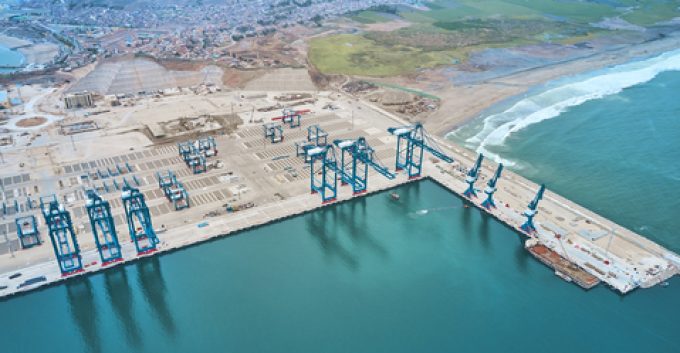Liner schedule reliability improving, with Gemini carriers leading the way
Ocean schedule reliability is at its highest in 17 months, according to Sea Intelligence, which ...

The new Chancay Port in Peru is set to begin receiving its first regular container calls as early as next month, following the terminal’s scheduled “soft” launch.
The newly built port, 60% controlled by Chinese state-owned shipping giant Cosco and 40% owned by local mining firm ...

Comment on this article